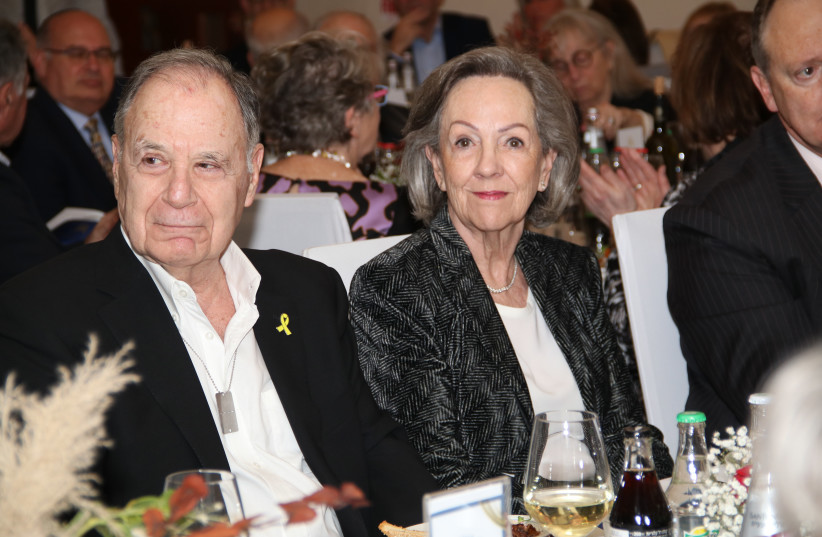Col. Richard Kemp began his speech to the 106th annual Balfour Dinner last week speaking about war in Gaza— not the current war, though this was the central focus of his speech; rather, the Battle of Gaza in 1917, which is seen in retrospect as a turning point in the conquest of Palestine by Britain, and the decline and fall of the Ottoman Empire.
Kemp was not the only, or even the first, speaker that evening to discuss this history: the theme of the evening was, as it is every year, the long view of history, and the choices made by Jews and non-Jews alike to create and defend the State of Israel.
The British warrior, who is neither Israeli nor Jewish, but has spent his life fighting terrorism alongside Israel and its soldiers, was one of a number of honored guests at the Israel, Britain, and the Commonwealth Association (IBCA)’s annual banquet in Herzliya on Thursday: also present were the Ambassadors to Israel from the United Kingdom, Australia, Canada, Cyprus and Sri Lanka, each of whom was personally thanked for his nation's friendship, today and in earlier years.
Col. Kemp, who bought himself a plane ticket to Israel as soon as he heard of Hamas’s attack, has remained in the country since, observing the conflict and briefing foreign diplomats and lawmakers about the situation on the ground. He addressed the crowd as one such friend, who recognizes Israel’s importance not only to its own citizens or to Jews around the world but to an entire international order.
Though today’s war in Gaza may be presented as devoid of any comparison, the truth is that there are many precedents of urban warfare one can use to understand the current fighting— and Col. Kemp, who commanded British forces in Afghanistan and Iraq, knows those precedents personally. It is with this firsthand authority that he informed the audience that, from what he has seen, no army in the history of warfare has done so much, in such challenging and hostile terrain, to minimize civilian casualties.
Detailing the unique circumstances that make today’s war in Gaza uniquely difficult for an attacking army— the closeness of the battleground to the Israeli homefront, the lives of more than a hundred civilian hostages, the more than a decade Hamas has had to prepare for just this scenario— Kemp dismantled, one by one, the myths of Israeli malevolence or even mere carelessness in its prosecution of this war of self-defense.

From Dan Gillerman, a bittersweet note of hope
Following Kemp’s speech, the crowd of businesspeople, civic leaders, and other members of the Anglo-Israeli community heard from Dan Gillerman, Israel’s 13th Permanent Representative to the United Nations, who served Israel on First Avenue at the height of the Second Intifada, as he gave voice to his disappointment at the caricature of Israel’s situation presented to the world since Hamas’s October 7 attack.
Defending Israel as a creative, humane, and contributing member of the community of nations, Gillerman assailed those who justify Hamas’s actions, or who “strive for equivalence and proportionality” at the expense of moral clarity, comparing the world’s reaction to Israel in its response to October 7 to the world’s reaction to the United Stations when it responded to the 9/11 attacks.
Then, striking a bittersweet tone of optimism, Gillerman voiced a dream that from the ruins of the current fighting, a new Israel, and even a new Middle East, might emerge, more peaceful and freer than what came before. He finished his speech with a toast to the hostages in Gaza.
The most honored guests, however, were not Kemp or Gillerman, but rather the table of lone soldiers, saluted repeatedly by the mostly-senior crowd for choosing to risk their own lives in the line of fire itself.
Though the dinner was not what the IBCA organizers had planned as recently as October 6, the annual celebration of the British Crown’s contribution to Zionism brought home the same message as always: Miracles don’t happen on their own, except by the blood, sweat, clarity and courage of those who merit to make them.
